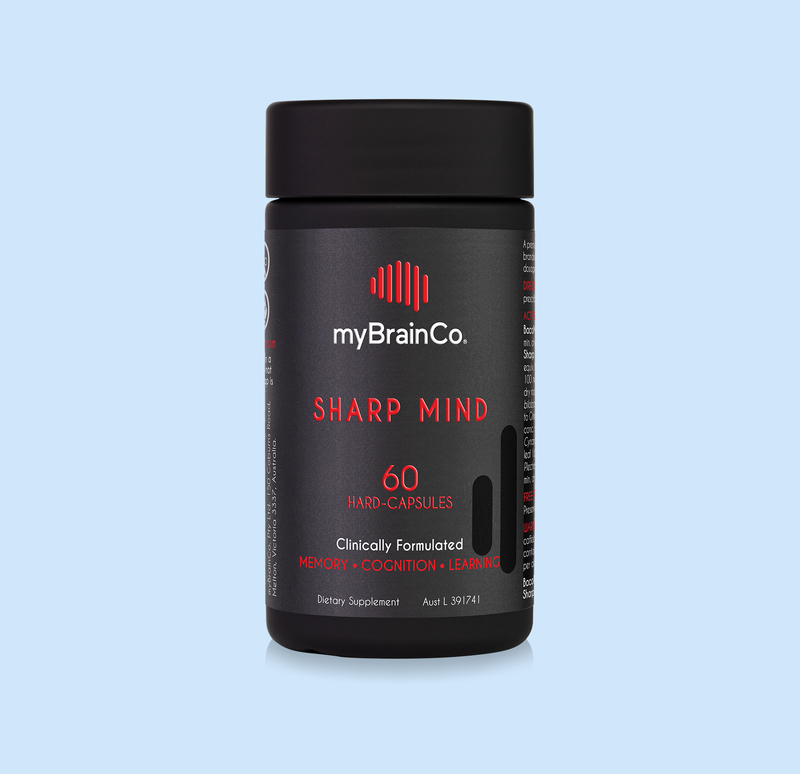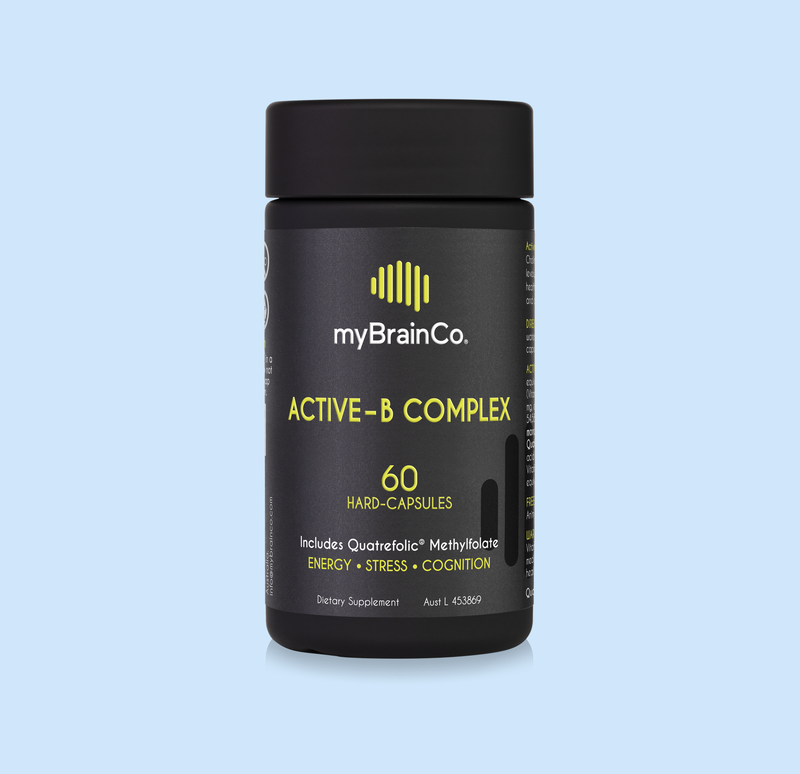If you own a smartwatch or Oura ring, you may have noticed it can measure Heart Rate Variability (HRV) but may not be sure what this tells you about your health.
HRV is a physiological phenomenon that reflects the subtle variations in time intervals between our successive heartbeats.
While this concept may seem obscure to the average person, HRV is emerging as a valuable biomarker not only for cardiovascular health but also for a biohacker to track what’s happening with brain and nervous system health.
What is Heart Rate Variability?
To understand the value of HRV as a measurement, one must first grasp the basics of the heart's intrinsic electrical system. As you’re probably aware, the heart doesn't beat at a constant rate; depending on what we’re doing or experiencing it will express slight variations in the time intervals between beats.
HRV measures these fluctuations in milliseconds between consecutive heartbeats. For example, if your heart rate is 60 beats per minute, it doesn't necessarily mean there's one beat every second. There might be a beat every 0.9 seconds, then 1.1 seconds, followed by 0.8 seconds, and so on. These variations are the signs of a well-regulated system at work, whereas conversely if the heart beats in a monotonous, regular rhythm, it would indicate that there is dysregulation and we are less capable of responding to changes in our stress or environment.
What Does The Nervous System Have To Do With Heart Rate Variability?
HRV is a reflection of our autonomic nervous system, which regulates involuntary bodily functions. Within our autonomic nervous system, we have two branches: the sympathetic nervous system and the parasympathetic nervous system.
The sympathetic nervous system is responsible for our "fight or flight" responses, while the parasympathetic nervous system is typically responsible for our "rest and digest" phase. HRV, therefore, can provide insights into the balance between these two systems.
To put it into very simple terms, imagine that your heart is the multi-tasking boss of a large organisation. This boss has two trusted advisors he or she depends on to help with decision-making - called the "sympathetic" and "parasympathetic" systems. It’s the job of these advisors to work closely with the boss to respond to the various situations the organisation encounters. For instance; when exercising or in danger, your sympathetic system activates and says, "Okay, boss (ie. heart), we need to beat a bit faster to give us energy!" Conversely, when there is no danger or immediate threats, and you need to relax or sleep, your parasympathetic system would advise, "Hey boss (aka heart), let's slow down a bit and relax."
So, when we talk about HRV, we're looking at how much your heart is capable of changing its speed. It's like a report card that shows how well it can listen to both of its ‘advisors’ and adapt to what your body needs.
When your heart can change its beat a lot, it's like saying, "Wow, your heart is really good at listening and adjusting!" And that's highly desirable because it indicates that your nervous system is more balanced, healthy and feeling good. But sometimes, if your heart isn’t able to initiate changes to its beats, it's like saying, "Hmm, your heart might need some extra help to listen better." High HRV typically indicates a healthy balance, while low HRV may suggest an imbalance or that there is stress upon the body.
Measuring and Interpreting HRV
HRV is typically measured using specialised equipment like electrocardiography (ECG or EKG) machines. More recently it’s become more accessible to the average person with wearable devices like smartwatches and heart rate monitors. These devices record the time intervals between heartbeats and provide data that can be analysed to calculate HRV.
When it comes to HRV, higher variability is generally considered better (although, this isn’t always this black and white). A higher HRV indicates that the heart can adapt more flexibly to our body's needs. It suggests that the parasympathetic nervous system is more dominant, facilitating crucial relaxation and recovery needs. Conversely, lower HRV may indicate we’re under chronic stress or experiencing an imbalanced autonomic nervous system, which can have negative implications for overall health.
Using HRV as a Tool For Measuring Brain Wellbeing
Now that we have a grasp of why HRV is relevant to brain and nervous system function, here is some of the evidence for how this impacts our long-term cognitive wellbeing.
Global Cognitive Function
Studies have shown that higher HRV is associated with better cognitive function, mental clarity and memory control. It appears that a balanced autonomic nervous system supports optimal brain function. This is because the parasympathetic nervous system, which dominates in high HRV situations, is linked to better restorative processes that enhance cognitive abilities.
Stress Reduction
HRV can be a valuable tool in objectively assessing our stress levels. Chronic stress may not always be outwardly obvious however it can have detrimental effects on the brain, leading to cognitive decline and mental health issues. Monitoring HRV can help us to identify when stress levels are consistently high, giving us a marker to quantify our stress levels and act accordingly to implement stress reduction strategies.
When HRV is low it has been shown to suggest that there is impaired regulatory and homeostatic autonomic nervous system (ANS) functioning, which reduces our body’s ability to cope with internal and external stressors.
Emotional Wellbeing
HRV is linked to emotional regulation. Individuals with higher HRV tend to have better emotional control and resilience. This is crucial because emotional stability is closely tied to mental health, and disruptions in this balance are more likely to trend towards issues with depression and anxiety.
Neurodegenerative Diseases
Some research suggests that HRV may have predictive value in identifying individuals at risk of neurodegenerative diseases like Alzheimer's and Parkinson's. Lower HRV has been associated with an increased risk of these conditions, possibly due to the negative impact of chronic stress on cardiometabolic health and inflammation - all of which impact our brain.
Can Nootropics Influence HRV?
Because of the influence many nootropic herbs and nutrients can have on our nervous system and perceived stress, there’s a number of herbal medicines and nutrients that can be employed to ‘hack’ our heart rate variability.
Ashwagandha
Ashwagandha is a significant adaptogenic herb used for stress and nervous system support. In a placebo-controlled trial, investigating the impact of ashwagandha on stress, those taking ashwagandha had a 9% increase in heart rate variability, whilst the placebo, non-treatment group had a reduction in heart rate variability of 18%.
L-Theanine
Research has explored the relaxation amino acid, L-theanine during periods of stress and fatigue and found that it Influences heart rate by buffering the acute responses to stressful stimuli.
Phosphatidylserine
Phosphatidylserine is well-regarded nootropic for supporting the body’s response to stress. One study showed that phosphatidylserine helped to alleviate subjective feelings of stress and influenced heart rate in response to a stressful mental arithmetic task.
Vitamin B12
Vitamin B12 is closely connected to our nerve and cardiac wellbeing. One study investigating the synergy of vitamin B12 and heart rate variability showed that when we are vitamin B12 deficient we have shifts in our heart variability that could be used as a predictor of autonomic dysfunction.
Alpha-GPC
One study looking at strenuous exercise recovery in overweight women concluded that those taking Alpha-GPC recovered heart rate variability and blood pressure faster following strenuous exercise and that this might provide a cardio-protective effect.
Check In On Your HRV
As you can see, Heart Rate Variability (HRV) is a valuable physiological marker that reflects the balance between your sympathetic and parasympathetic nervous systems. Monitoring HRV can provide insights into our overall health, including brain health. With access to wearable technology, it has become easier than ever to track our HRV trends in response to supplemental or lifestyle changes and take proactive steps to optimise autonomic nervous system balance, to biohack better brain health so we can think and feel our best.
REFERENCES
- Shaffer F, et al. An Overview of Heart Rate Variability Metrics and Norms. Front Public Health. 2017 Sep 28;5:258.
-
Xhyheri B, et al. Heart rate variability today. Prog Cardiovasc Dis. 2012 Nov-Dec;55(3):321-31.
- Schiweck C, et al. Heart rate and high frequency heart rate variability during stress as biomarker for clinical depression. A systematic review. Psychol Med. 2019 Jan;49(2):200-211.
-
Forte G, et al. Heart Rate Variability and Cognitive Function: A Systematic Review. Front. Neurosci. 2019;13:710.
- Solhjoo S, et al. Heart Rate and Heart Rate Variability Correlate with Clinical Reasoning Performance and Self-Reported Measures of Cognitive Load. Sci Rep. 2019;9:14668.
- Kim HG, et al. Stress and Heart Rate Variability: A Meta-Analysis and Review of the Literature. Psychiatry Investig. 2018 Mar;15(3):235-245.
- Jiryis T, et al. Resting-state heart rate variability (HRV) mediates the association between perceived chronic stress and ambiguity avoidance. Sci Rep. 2022;12:17645.
- Smith SJ, et al. Exploring the efficacy and safety of a novel standardized ashwagandha (Withania somnifera) root extract (Witholytin®) in adults experiencing high stress and fatigue in a randomized, double-blind, placebo-controlled trial. J Psychopharmacol. 2023 Nov;37(11):1091-1104.
- Kimura K, et al. L-Theanine reduces psychological and physiological stress responses. Biol Psychol. 2007 Jan;74(1):39-45.
- Benton D, et al. The influence of phosphatidylserine supplementation on mood and heart rate when faced with an acute stressor. Nutr Neurosci. 2001;4(3):169-78.
- Park EJ. Association between vitamin B12 status and heart rate variability in patients with ischemic stroke. Medicine (Baltimore). 2023 Apr 21;102(16):e33428.
- Barzanjeh SP, et al. The Effects of Alpha-Glycerylphosphorylcholine on Heart Rate Variability and Hemodynamic Variables Following Sprint Interval Exercise in Overweight and Obese Women. Nutrients. 2022 Sep 24;14(19):3970.



